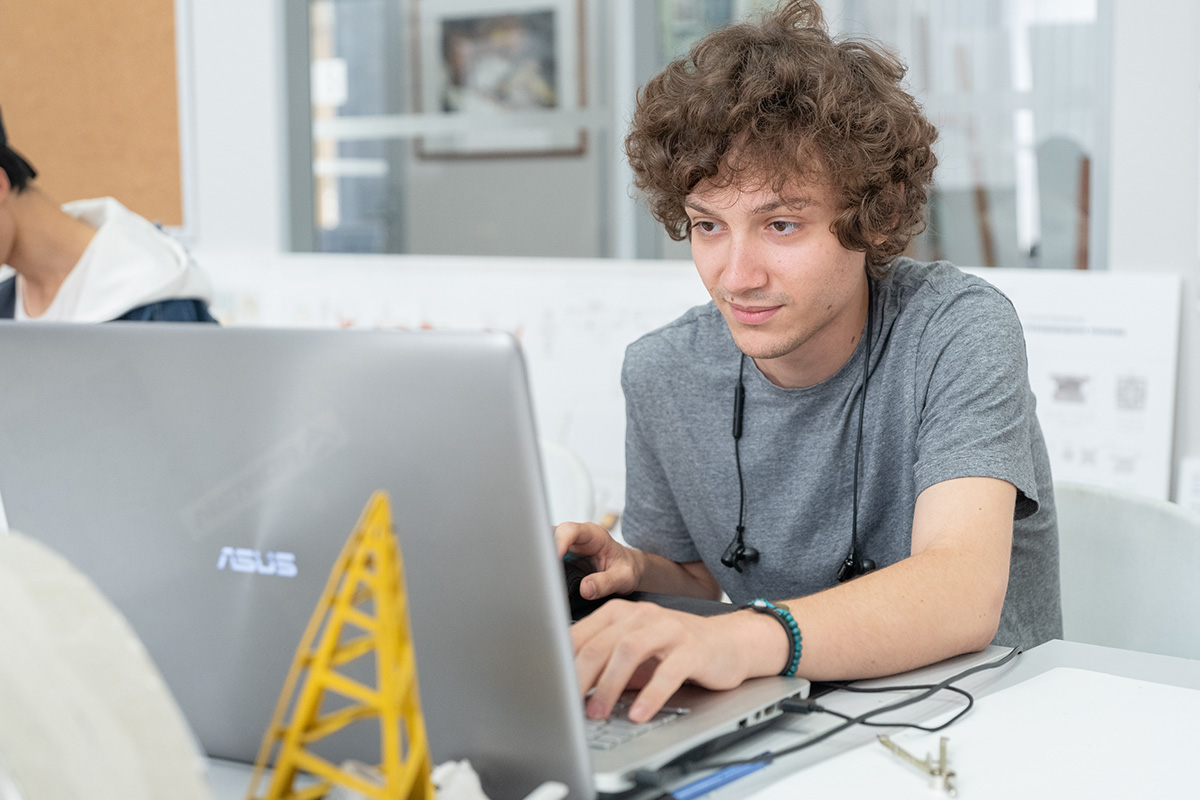Polymer Composite Materials and Additive Manufacturing (SPbPU - MAI joint program)

International Polytechnic Summer School 2024 will be held on campus.


- Brief description
Polymer composites have high strength, lightness, and good thermal and acoustic properties, making them ideal for use in a variety of industries, including aviation, automotive, and construction. In the first part of our summer school, based at MAI, we will introduce you to the main types of binders and fillers used in composite materials, and talk about their advantages and disadvantages. The program of the first module will be full of interactive classes, laboratory workshops and visits to the real production, where aircraft structures from PCM are manufactured.
In the second module, on the basis of SPbPU, you will get acquainted with additive manufacturing, which is increasingly used in a variety of industries. In this module, you will learn about production methods and characteristics of powder materials, get acquainted with various technologies of additive manufacturing, including the technology of electric arc additive manufacturing from wire. One of the most serious problems in the field of additive technologies is the problem of joining the printed parts into a single, complete structure. This joining must meet a large number of requirements, including preservation of the unique microstructure and properties obtained during growth. To solve these problems, methods of joining materials in the solid state, in particular, friction stir welding, are mainly used, which we will introduce you to.
Career Opportunities: This is more than just a course - it's the key to a future in engineering, materials science, design and other related industries. Gain valuable experience and knowledge that will become your competitive advantage.
Duration: 2 weeks
First week will be held at Moscow Aviation Institute. Second week will be held at Peter the Great St.Petersburg Polytechnic University.
ECTS credits: 4.0
Participation fee: 1450 USD
Upon successful completion of the course students will receive hard copies of certificates with ECTS credits (mailed by post in case of the online format of the Summer School).
Deadline for registration: May 27, 2024
- Entrance requirements
- • Fluent English. All classes and extracurricular activities are carried out in English;
- • Students from different area (material science, mechanical engineering, physics, etc) finishing a Bachelor or in Master, PhD students;
- • Basic knowledge of material science, mechanical engineering. At least 4 years of University level studies (technical directions);
- Course description
1 week (MAI)
1. Introduction. General ideas about composite materials. Brief historical excursion.
2. Definition and classification of polymer composites. Micromechanical aspects of interaction of PCM components.
3. Advantages and disadvantages of PCMs compared to metals. Overview of PCMs used in the aerospace industry.
4. Classification of fillers. Dispersed fillers. Fiber fillers. Layered fillers. Granular fillers. Classification of reinforcing fillers. Fiberglass fillers. Carbon fiber fillers. Organofiber fillers. Borofiber fillers.
5. Classification and peculiarities of properties of polymer composite materials.
6. Basic mechanical and physicochemical characteristics of fillers.
7. Binders and their role in the formation of PCM properties. Fillers and their role in formation of PCM properties.
8. Basic mechanical and physicochemical characteristics of binders.
9. Influence of phase structure of polymer composite material on its properties. Filler content in PCM. Size and shape of dispersed particles in PCM. Interfacial interaction.
10. Preparation of PCM by mixing of components. Preparation of PCM components for mixing. Technology of filler introduction. Mixing with a small amount of additive. Introduction of plasticizers into polymers.
11. Overview of the main technologies for the production of PCM products used in the aerospace industry.
12. Nano-sized fillers. Overview of existing nano fillers. Objectives of introducing modifications.
13. Mechanical and physicochemical properties of nano fillers.
14. Methods of obtaining PCMs modified by nanoparticles.
15. Characteristics of the obtained nano-composites.
16. Trends in the creation of modern materials. Additive technologies and materials for them.
17. Features of the structure of metallic and composite materials formed under the conditions of additive technologies. 18. Experimental determination of specific stiffness of elementary samples of different materials.
2 week (SPbPU)
1. Introduction. Fundamentals of powder metallic materials (PMM). History of powder metallurgy. Main fields of PMM application.
2. Definition and classification of PMM. Basic properties of PMM.
3. Mechanical alloying. Physics of the process, methods of mechanical alloying realization.
4. Gas-phase synthesis of PMM. Physics of the process, ways of synthesis realization.
5. Melt atomization. Physics of process, ways of technology realization.
6. Additive technologies for metal products. General characteristics, advantages and disadvantages in comparison with traditional methods of parts production.
7. Additive technologies for metal products. Powder - laser.
8. Additive technologies for growing metal products. Wire - arc.
9. Joining technologies. General classification of methods.
10. Methods of joining metallic materials in solid state. Fundamentals, classification of processes.
11. Friction stir welding (FSW). Physics of the process, areas of application, advantages and disadvantages of the method.
12. Modified methods of FSW.
The detailed course description for ECTS credits transfer at your home university:
Program partners:
- Moscow Aviation Institute (MAI)
Professors and lecturers:
- Professors from Moscow Aviation Institute;
- Anton Naumov, associate professor, Polytech, Russia
Contacts:
Summer and Winter Schools Team
- summerschool@spbstu.ru
- +7 (812) 534-25-31
- room 227, 28, Grazhdanskii prospect, 195220, St.Petersburg, Russia
